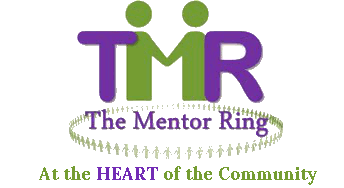
Equality and Diversity Policy Statement
Individuals with different cultures, perspectives and experiences are at the heart of the way The Mentor Ring works. At The Mentor Ring we are guided by our values in everything we do, and recognise that being a diverse and inclusive Charity helps us fulfil our responsibility to make a difference for patients.
We seek to develop an environment where we treat Volunteers, Sessional workers, Mentors and beneficiaries as individuals, fairly and in a consistent way. We work within the spirit and the practice of the Equality Act 2010 by promoting a culture of respect and dignity and actively challenging discrimination, should it ever arise. We will remove unnecessary barriers for our volunteers seeking opportunities through training and development, promotion and career planning.
Equality and Diversity Policy
1. Purpose
This policy sets out The Mentor Ring’s approach to equality and diversity. The Mentor Ring is committed to promoting equality and diversity and promoting a culture that actively values difference and recognises that people from different backgrounds and experiences can bring valuable insights to the charity and enhance the way we work.
The Mentor Ring aims to be an inclusive organisation, committed to providing equal opportunities throughout employment including in the recruitment, training and development of employees, and to pro-actively tackling and eliminating discrimination.
2. Equality and diversity at The Mentor Ring
At The Mentor Ring, we consider that equality means breaking down barriers, eliminating discrimination and ensuring equal opportunities and access for all groups both in employment, and to goods and services.
We consider diversity to mean celebrating difference and valuing everyone. Each person is an individual with visible and non-visible differences and by respecting this everyone can feel valued for their contributions which is beneficial not only for the individual but for The Mentor Ring too.
We acknowledge that equality and diversity are not inter-changeable but inter-dependent. There can be no equality of opportunity if difference is not valued and harnessed.
3. Scope
The rights and obligations set out in this policy apply equally to all employees, volunteers and beneficiaries. You have personal responsibility for the application of the policy.
4. The Mentor Ring’s commitment
All staff, volunteers and beneficiaries are entitled to an environment that promotes dignity, equality and respect for all. The Mentor Ring will not tolerate any acts of unlawful or unfair discrimination (including harassment) committed against staffs, sessional worker, volunteer, beneficiaries or visitor because of a protected characteristic:
• Sex;
• Gender reassignment;
• Marriage and civil partnership;
• Pregnancy and maternity;
• Race (including ethnic origin, colour, nationality and national origin);
• Disability;
• Sexual orientation;
• Religion and or belief; and
• Age.
All staffs and volunteers will be encouraged to develop their skills and fulfil their potential and to take advantage of training, development and progression opportunities in The Mentor Ring.
No form of intimidation, bullying or harassment will be tolerated. If anyone believe that they may have suffered discrimination because of any of the above protected characteristics, they should consider the appropriateness and feasibility of attempted informal resolution by discussion in the first instance with their line manager or another colleague in a relevant position of seniority.
Allegations regarding potential breaches of this policy will be treated in confidence and investigated in accordance with the appropriate procedure. The Mentor Ring will ensure that individuals who make such allegations in good faith will not be victimised or treated less favourably by The Mentor Ring as a result.
Employees may also be personally liable for any acts of discrimination prohibited by this policy that they commit, meaning that they can be sued by the victim.
5. When does this policy apply?
This policy applies from the point of their engagement to all officials of TMR (paid and unpaid) and all beneficiaries involved in the projects and services of TMR. It applies to all conduct in the workplace and also to conduct outside of the workplace that is related to your work (e.g. at meetings, social events and social interactions with beneficiaries) or which may impact on The Mentor Ring’s reputation (e.g. the expression of views on social media, contrary to the commitments expressed in this policy, that could be linked to The Mentor Ring).
ANNEX – types of discrimination
There are various types of discrimination prohibited by this policy. The main types are:
1) Direct discrimination
Direct discrimination occurs where one person is treated less favourably than another because of a protected characteristic set out in this policy.. Other types of direct discrimination are:
• Associative discrimination – this is direct discrimination against someone because they associate with another person who possesses a protected characteristic.
•Perceptive discrimination – this is direct discrimination against an individual because others think they possess a particular protected characteristic. It applies even if the person does not actually possess that characteristic.
2) Indirect discrimination
Indirect discrimination occurs when an unjustifiable requirement or condition is applied, which appears to be the same for all, but which has a disproportionate, adverse effect on one group of people. This is discrimination even though there was no intention to discriminate.
3) Victimisation
Victimisation is where a staff/volunteer is treated less favourably than others because they have asserted legal rights against The Mentor Ring or assisted another person in doing so.
4) Harassment
Harassment is “unwanted conduct related to a relevant protected characteristic, which has the purpose or effect of violating an individual’s dignity or creating an intimidating, hostile, degrading, humiliating or offensive environment for that individual.” It is important to remember that it is not the intention of the harasser but how the recipient perceives their behaviour, which determines whether harassment has occurred.
